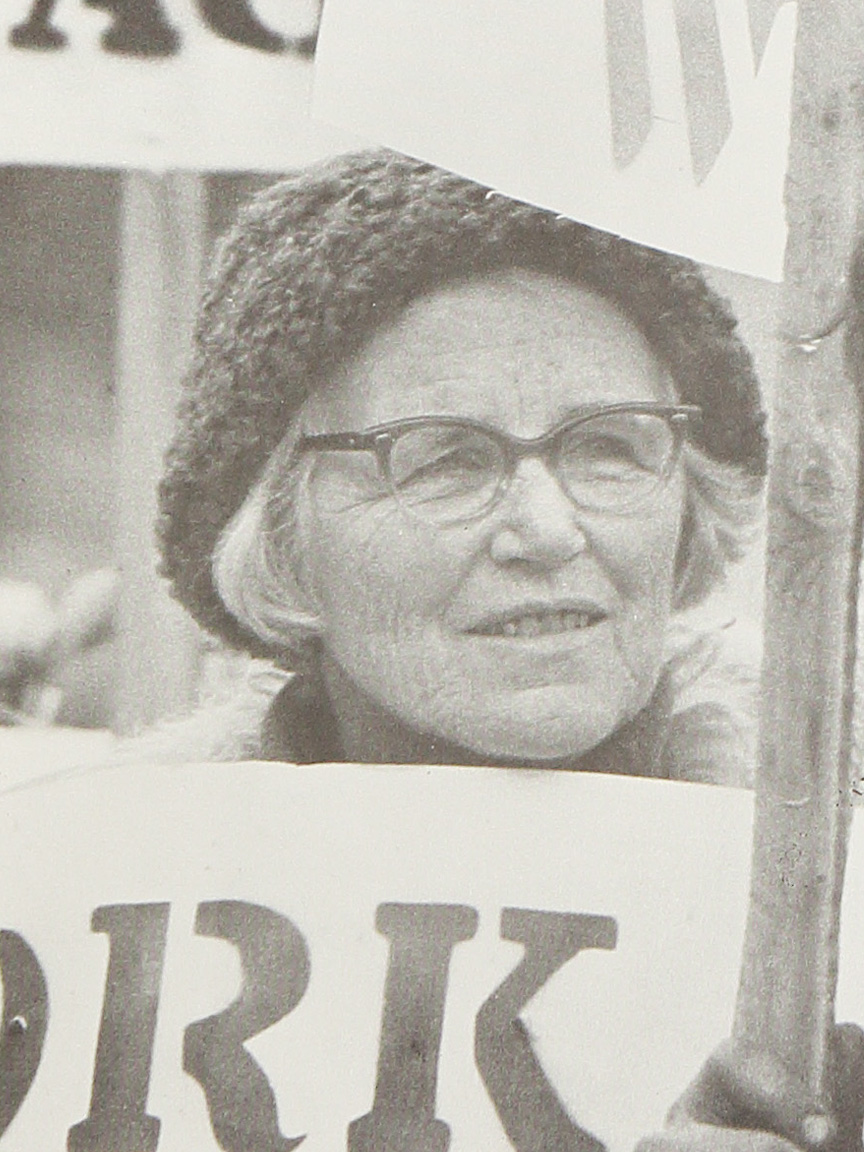Peace, Hope and Love
By the time Muriel Duckworth (née Ball) moved to Halifax with her husband Jack in 1947, she was already a fully formed feminist and peace activist. "Gentle yet fierce" is one description of her. Another admirer wrote that "peace, hope and love" were her watchwords. Any way you summarize it, Muriel's long life was dedicated to advancing world peace and social justice, twin causes she believed were deeply inter-connected.
Muriel always acknowledged that she first learned how to be strong, independent and community-minded from her mother's example, on the family farm where she grew up in Quebec's Eastern Townships. Arriving in Nova Scotia in 1947 — as previously when she and Jack had lived in Montreal and New York City — Muriel was an advocate not just for peace, but equally for the underlying elements that made peace possible: women's rights, social justice, education, mental health and a healthy environment. The list of organizations — city-based, provincial, national and international — to which she belonged (or helped create) is long. In Halifax, she was a strong voice combating racism and supporting community development. The group with which she was most closely associated in the public mind was the Voice of Women (VOW). Muriel served on its national board from 1960 to 1975, and as Canadian president from 1967 to 1971.
At times, advocating for peace was not comfortable or easy. During periods of wars, Muriel was sometimes criticized or mocked. Nonetheless, she did not waver from her beliefs. For a long life dedicated to peace and social justice, Muriel Duckworth received many awards and honours. They included honorary degrees from ten universities and being made a Companion of the Order of Canada. Just as her mother had been an example to her, Muriel was a role model for countless Nova Scotia women, including young Alexa McDonough and Elizabeth May.

